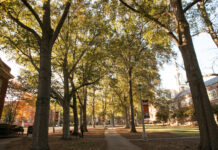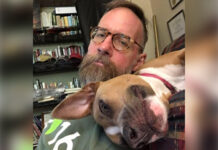I love stories. I always have. They have a way of communicating wisdom without being judgmental or preachy. They present a realistic-enough scenario that draws us into the narrative world of the story and then confronts us with its arresting outcome that ought to give us reason to ponder.
One of the first stories that I remember from my childhood was one of Aesop’s Fables, The Little Boy Who Cried Wolf. It goes something like this.
There was a boy tending the sheep who would continually go up to the embankment and shout, ‘Help, there’s a wolf!’ The farmers would all come running only to find out that what the boy said was not true. Then one day there really was a wolf, but when the boy shouted, they didn’t believe him, and no one came to his aid. The whole flock was eaten by the wolf. (Perry, 210, translated by Laura Gibbs, 2002)
I am sure that I heard this as a youngster from my parents and teachers. What better way to impress the point about telling the truth than through such a story. The simple act of a few harmless lies by a bored shepherd boy suddenly results in a huge and disastrous tragedy. “So, Craig, don’t tell a lie.” I am quite sure that I promised that I wouldn’t.
Well, despite my noble intentions, I am pretty sure that knowing this story did not completely purge my soul of telling some lies. A little lie here or there, what could it hurt? A white lie might fend off some unwanted darkness. Maybe it could get me out of some trouble or give me some sort of advantage. Maybe my stretching, bending or even breaking the truth will never reach the light of day. Who will ever know?
So, I confess now that I might not have been 100% compliant with my childhood pledge of truth-telling. After all, it was just a story about a shepherd boy. Did it really apply to me? I didn’t even have one sheep.
It was only years later with many more life experiences under my belt that I realized something underneath the surface of this “precautionary tale” that was profound and applied directly to me.
But, this realization came to me in stages. At first, the wisdom of this story amounted to reputation. William Caxton, the first to translate Aesop’s Fables into English (1484), ended his translation of the fable with a moral — “men bileve not lyghtly hym whiche is knowen for a lyer.” So, don’t earn the reputation of being a liar, for then no one will ever believe you.
Eventually, I came to realize that there was something more at stake in telling the truth than personal reputation. Lying destroys community. Hiding the truth or telling untruths unravels the precious and delicate fabric of our lives together.
In the fable, the ornery shepherd boy cries “wolf” to play a trick — an ultimately unfortunate one — on his community. He knows that they will come running to the rescue. When they arrive, the joke is on them, and they return home. When he cries “wolf” again, the community members break off from their chores and comes rushing to save the boy and his flock. They are duped a second time, and the shepherd boy laughs at them all looking so silly when they realize they have fallen for his trick again.
We are not told in the fable, how many times the community hurries to the rescue, only to find that it was a lie. What we are told is that at some point, the community no longer does what it used to do. Trust has been broken. The fabric of community has been torn. So, when the wolf really comes, and the shepherd boy earnestly calls for help, the community ignores him. His previous lies have broken the bonds of the community’s eagerness to come to his aid. The relationships and responsibilities of community have been destroyed by the lies of the foolish little boy who never imagined the consequences of his lies.
The truth is that we, as a culture, are drifting further and further from truth-telling. From simple tweets and Facebook posts to the national media to elected leaders to foreign influencers. The simple and not surprising result is a massive and deadly pandemic of mistrust and suspicion that is unraveling our lives together, locally and globally. The blessings of community that used to send us rushing to one another’s aid are withering. We are becoming increasingly isolated and fearful, unsure of whom or what we can trust. So, we hunker down in a protective posture that alienates us from one another, and community dies.
It turns out Aesop, my parents and teachers were right. Lying is a bad thing. It will destroy the very best gifts of our life together.
May we dedicate ourselves to be truth-tellers in big and small ways, convenient or not, for the sake of ourselves and the campus, neighborhoods, nation and world we live in.








